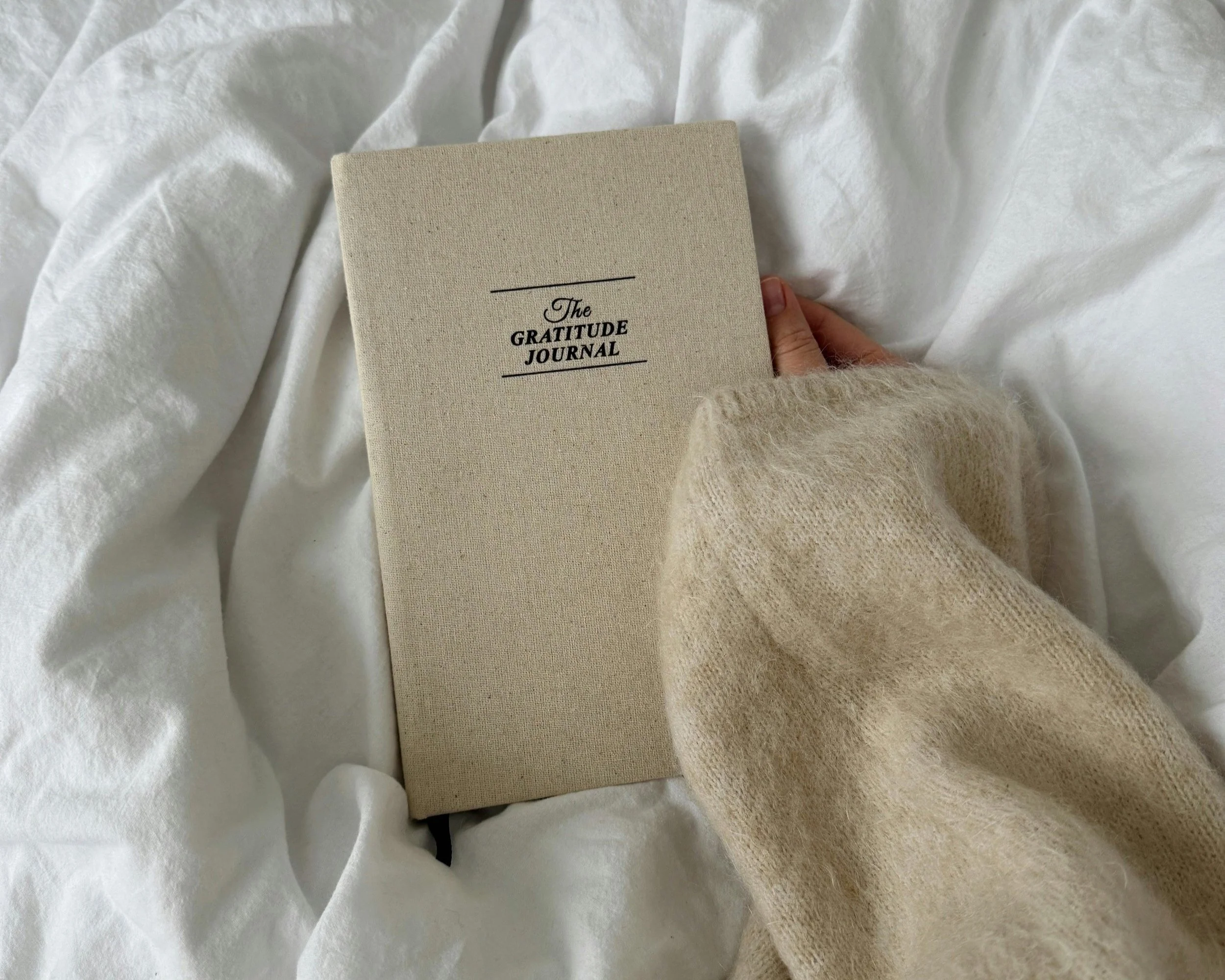WRITE IT DOWN: THE GENTLE POWER OF JOURNALLING
By Nicole Fuge
There’s something beautifully intimate about taking a moment to sit down, pen in hand, to just... write. Nothing but you, the page, and the gentle release of thoughts that are finally allowed to spill out. Because not everything needs to live rent-free in your head.
So it’s no surprise journalling is having a resurgence, and not just among self-help circles or stationery lovers. From therapists to neuroscientists to your best friend who swears by her morning pages, the verdict is in: writing things down can change your life.
But journalling isn’t a one-size-fits-all thing. There’s no single “right” way to do it. It’s deeply personal, often messy, and when done with intention, it’s profoundly healing.
So why journal? How do you begin? And what might shift if you simply got things out of your head and onto the page?
Why Journalling Works
Our brains are magnificent, capable of holding stories, dreams, appointments, conversations, worries, and wish lists. But that doesn’t mean they’re meant to store it all. Over time, our mental load becomes a cluttered inbox… unread, unsorted, and quietly stressful.
Writing helps clear space.
When we journal, we offload. We give thoughts somewhere else to live, somewhere safer than our overworked minds. The simple act of writing externalises your internal world, allowing you to witness what you’re feeling rather than carry it.
Research backs this up. Journalling can:
Reduce anxiety and rumination
Boost mood and emotional clarity
Strengthen memory and cognitive function
Improve sleep and decision-making
Increase self-awareness and resilience
In other words: writing helps you feel better, think clearer, and know yourself more deeply.
How to Start Journalling
You don’t need a fancy journal, poetic sentences, or a structured plan. Journalling doesn’t need to look like anything. You just need a moment of stillness, a page (digital or physical), and honesty.
Here are a few ways to begin:
1. Stream of consciousness (aka the brain dump)
This is perfect if your mind is buzzing. Simply write whatever comes up; no punctuation, no edits, no filter. Just get it out. Start with, “Right now I’m feeling…” or, “I don’t know what to write but…” and let it flow.
2. Prompted Journalling
If staring at a blank page gives you hives, use gentle prompts like:
What’s taking up the most space in my mind right now?
What do I need more of, and what do I need less of?
What would I say if no one was listening but me?
3. Gratitude Lists
Simple but powerful. Write down three things you’re grateful for each day. It rewires your brain to notice the good, even on tough days.
4. Dialogue Journalling
This technique can be grounding when you’re working through conflict, confusion or self-doubt. Imagine you’re having a conversation; with your inner critic, your future self, or even your anxiety. Ask questions. Let them answer.
5. Ritual-Based Journalling
Set a time (first thing in the morning, during your lunch break, or before bed) and make it a soft ritual. Light a candle. Brew tea. Let it feel like a moment for you.
What You Might Notice
After a week or two of regular journalling, many people describe a shift, not necessarily in their circumstances, but in how they feel about them.
You might find:
You sleep better because your thoughts have somewhere to go.
You react less impulsively because you’ve already processed how you feel.
You see patterns more clearly; what energises you, what drains you.
You become your own best confidante, rather than outsourcing clarity to others.
You feel lighter, even on heavy days.
Journalling doesn’t make life easier, but it makes it more liveable. It offers a place for the noise to land, so your mind can finally breathe.
If you’re thinking, “I tried it and it didn’t work,” that’s okay. Journalling isn’t meant to be perfect. It’s a practice, not a productivity hack. And like any practice, it can feel awkward at first. Start small. A sentence. A scribble. A list of what you ate for lunch if that’s all you’ve got in you. There are no rules.
So if your brain feels cluttered, tired, or just... full, journalling might be the most generous thing you can offer yourself right now. A moment to pause. A way to feel heard. A quiet space where you’re allowed to be exactly as you are.
Because your thoughts don’t need to be sorted, solved or silenced. They just need somewhere to go.
So write them down.
MUSE PAPER
ISSUE 06
